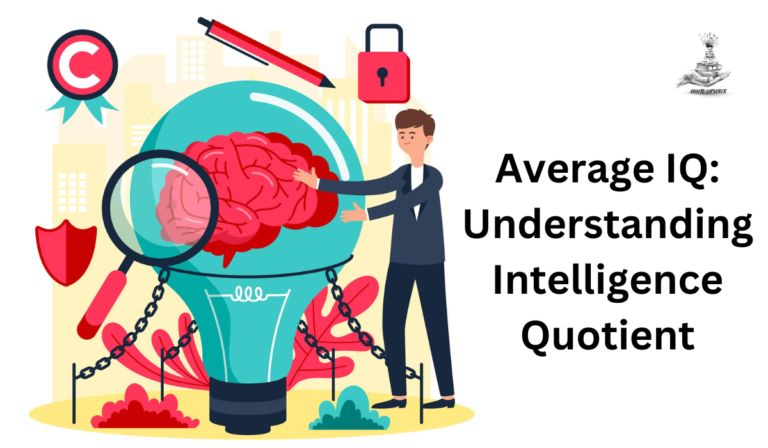Wellhealth Ayurvedic Health Tips: Autism
In our previous sessions of Wellhealth Ayurvedic health tips, we offered recommendations for maintaining overall well-being per Ayurveda. Today we will continue further in the series and talk about a relatively less prevalent but serious condition, Autism. Autism spectrum disorder (ASD) is a neurodevelopmental condition characterized by challenges with social interaction, communication, and repetitive behaviors. It is considered a spectrum because it presents a wide range of symptoms and severity levels involving a combination of genetic, environmental, and neurological factors.
Ayurveda also views health and well-being as a balance between mind, body, and spirit. While it does not offer a direct cure for autism, it provides holistic approaches that can complement conventional treatments and support the overall health and quality of life of individuals with ASD.

Wellhealth Ayurvedic health tips: Maintaining Balance
Balanced Diet: A balanced diet includes a variety of nutrient-rich foods such as fruits, vegetables, whole grains, lean proteins (like chicken, fish, tofu), and healthy fats (like avocados, nuts, olive oil). Such a diet provides essential vitamins, minerals, and nutrients necessary for overall health, growth, and development. It can also positively impact mood and behavior regulation in children with autism by stabilizing blood sugar levels and supporting brain function.
Digestive Health: Good digestion is crucial for absorbing nutrients from food and eliminating waste from the body. Ayurveda emphasizes the importance of maintaining an intense digestive fire (Agni) for optimal health. Supporting digestive health through dietary choices, proper hydration, and incorporating digestive spices (such as ginger and turmeric). It can improve nutrient absorption and alleviate gastrointestinal discomfort often experienced by individuals with ASD.
Routine: Children with autism often benefit from having a structured routine as it provides predictability and reduces anxiety. A consistent daily schedule helps them understand what to expect, promoting a sense of security and stability. Routines can include regular meal times, bedtime routines, and structured activities, providing a framework for the child’s day.
Sensory Integration: Many individuals with ASD have sensory sensitivities, which can manifest as heightened sensitivity or aversion to specific stimuli (such as loud noises, bright lights, or certain textures). Providing appropriate sensory stimulation through activities like sensory play, deep pressure activities, or calming sensory environments can help regulate sensory responses and promote relaxation.
Mindfulness and Relaxation: Teaching mindfulness and relaxation techniques, such as deep breathing exercises, progressive muscle relaxation, or guided imagery, can help children with autism manage stress and anxiety. These techniques promote emotional well-being and self-regulation by increasing awareness of emotions and encouraging a sense of calm.
Herbal Supplements: Some Ayurvedic herbs, such as Brahmi (Bacopa monnieri) or Ashwagandha (Withania somnifera), are believed to support cognitive function and nervous system health. However, it’s essential to consult with a healthcare provider before using any herbal supplements, especially for children with autism, to ensure safety and efficacy.
Ayurvedic Massage (Abhyanga): Abhyanga, or Ayurvedic massage, involves gently massaging warm herbal oils onto the body. This practice promotes relaxation, improves circulation, and enhances overall well-being. For children with autism, abhyanga can be soothing and grounding, providing sensory stimulation and promoting relaxation.
Avoiding Overstimulation: Children with autism may become overwhelmed by excessive sensory stimuli, which can lead to meltdowns or sensory overload. Creating a calm and supportive environment with minimal sensory distractions helps children with autism feel safe and comfortable, enabling them to focus and thrive.
Hydration: Proper hydration is essential for maintaining overall health and well-being. Encouraging children with autism to drink an adequate amount of water throughout the day supports bodily functions, helps prevent dehydration, and promotes cognitive performance.
Emotional Support: Providing emotional support, acceptance, and understanding is crucial for the well-being of children with autism. Offering love, encouragement, and positive reinforcement helps children feel valued and supported, fostering their emotional development and self-esteem.
Wellhealth Ayurvedic health tips: Autism Medicine
Swarnaprashana: Swarnaprashana is a unique Ayurvedic preparation containing gold and honey. It is believed to boost immunity and promote overall well-being in children. It is often administered to improve cognitive functions and enhance brain development.
Saraswatharishtam with Gold: Saraswatharishtam is an Ayurvedic tonic primarily used to enhance memory, concentration, and overall brain function. The addition of gold further enhances its properties, making it beneficial for neurological disorders like autism.
Brahmi Taila: Brahmi Taila is an Ayurvedic herbal oil prepared from the Brahmi plant (Bacopa monnieri). It is used for head massages and is believed to have a calming effect on the mind, promoting relaxation and reducing stress. In autism, it may help soothe the nervous system.
Brahmi Vati: Brahmi Vati is a classical Ayurvedic formulation containing Brahmi (Bacopa monnieri) and other herbs. It is commonly used to improve cognitive function, memory, and concentration. It may be beneficial for managing behavioral issues associated with autism.
Brahmi Gritha: Brahmi Gritha is a medicated ghee (clarified butter) infused with Brahmi and other herbs. It is known for its neuroprotective properties and is used to support brain health and cognitive function. In autism, it may aid in improving attention span and reducing hyperactivity.
Kalyanaka Gritha: Kalyanaka Gritha is a traditional Ayurvedic preparation containing herbs like Dashamoola and Guduchi. It is used to balance Vata and Pitta doshas and promote overall health and well-being. In autism, it may help regulate digestive functions and alleviate associated symptoms.
Mahakalyanaka Ghritam: Mahakalyanaka Ghritam is a medicated ghee formulation used in Ayurveda for various neurological and psychological disorders. It is believed to have calming effects on the mind and nervous system, which can be beneficial for individuals with autism.
Manasamitra Vatakam: Manasamitra Vatakam is a classical Ayurvedic medicine used to treat various mental health conditions, including anxiety, depression, and cognitive deficits. It contains potent herbs and minerals that help balance neurotransmitters and promote mental clarity and emotional well-being.
Saraswata Ghritam: Saraswata Ghritam is a medicated ghee preparation containing herbs like Brahmi, Shankhapushpi, and Ashwagandha. It is used to enhance cognitive function, memory, and learning ability. In autism, it may help improve communication skills and reduce repetitive behaviors.
Kshirabala Tailam: Kshirabala Taila is an Ayurvedic herbal oil primarily used for external application, especially in conditions affecting the musculoskeletal system and nervous systems. It is often used in massage therapy to relieve muscle stiffness, joint pain, and neurological symptoms associated with autism.
Anu Tailam: Anu Tailam is a classical Ayurvedic nasal oil used for Nasya therapy, a traditional Ayurvedic practice of administering herbal oils through the nasal passages. It helps clear the nasal passages, relieve sinus congestion, and improve cognitive function by promoting better oxygenation and circulation to the brain.
Also Read: Wellhealth Ayurvedic health tips: Summer Season (Grishma)
FAQ’s
What is Ayurveda?
Ayurveda is an ancient system of medicine originating from India, which views health as a balance between mind, body, and spirit. It offers holistic approaches to promoting well-being and treating various health conditions.
Can Ayurveda cure autism?
Ayurveda does not offer a direct cure for autism spectrum disorder (ASD). However, it provides holistic approaches that can complement conventional treatments and support the overall health and quality of life of individuals with ASD.
What are some Ayurvedic approaches to supporting individuals with autism?
Wellhealth Ayurvedic health tips offer Ayurvedic approaches to supporting individuals with autism which include:
- Promoting a balanced diet.
- Maintaining digestive health.
- Establishing routines.
- Integrating sensory integration techniques.
- Teaching mindfulness and relaxation.
- Considering herbal supplements.
- Utilizing Ayurvedic massage (Abhyanga).
- Avoiding overstimulation.
- Ensuring hydration.
- Providing emotional support.
What are some Ayurvedic medicines and preparations used for autism?
Wellhealth Ayurvedic health tips provides information about some Ayurvedic medicines for autism including Swarnaprashana, Saraswatharishtam with Gold, Brahmi Taila, Brahmi Vati, Brahmi Gritha, Kalyanaka Gritha, Mahakalyanaka Ghritam, Manasamitra Vatakam, Saraswata Ghritam, Kshirabala Tailam, and Anu Tailam. These formulations are believed to support cognitive function, neurological health, and overall well-being.
Are Ayurvedic approaches safe for children with autism?
Ayurvedic approaches can be safe for children with autism when used appropriately. Under the guidance of a qualified healthcare provider familiar with both Ayurveda and autism spectrum disorder. It’s essential to consult with a healthcare professional before incorporating any Ayurvedic treatments or supplements. Especially for children with ASD, to ensure safety and efficacy.
How can I learn more about Ayurvedic approaches to autism?
To learn more about Ayurvedic approaches to autism spectrum disorder in addition to Wellhealth Ayurvedic health tips you can consult with qualified Ayurvedic practitioners. Read reputable books and articles on Ayurveda and autism, and explore credible online resources provided by recognized Ayurvedic institutions and organizations. Additionally, discussing your questions and concerns with healthcare professionals experienced in both Ayurveda and autism can provide valuable insights and guidance.







